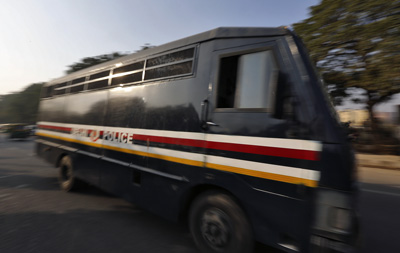A British journalist trying to cover the Delhi gang rape trial was asked to leave the courtroom on Tuesday after the prosecution objected to the presence of the international press. Andrew Buncombe, a correspondent for The Independent of London, was ejected from a court in the Indian capital even though a wide-ranging order restricting press coverage had been lifted last month.
In issuing the original order, the trial court invoked a section of the criminal procedure code that forbids anyone unconnected to a case to be in the courtroom during trial and makes it “unlawful for any person to print or publish any matter in relation to any such proceedings, except with the previous permission of the court.” In restricting access, the trial court reasoned in part that crowds overflowing the courtroom were hampering the proceedings.
Although the High Court reinstated press access to the proceedings last month, it left some restrictions in place–at least in the eyes of the trial court.
On Tuesday, the small courtroom was not full, and about six other journalists were present, according to Buncombe. When proceedings began, public prosecutor Dayan Krishnan pointed to Buncombe, a reporter who has worked in India as an accredited journalist for almost six years, and asked to see his identification. Buncombe complied. Krishnan told the judge that the British journalist should not be allowed, and that his presence was a breach of restrictions that the High Court had seemingly left in place.
Judge Yogesh Khanna said that High Court order appeared to allow only accredited Indian dailies and news agencies into the courtroom. “Electronic and foreign media are not allowed to attend the proceedings. In case they want details of the proceedings, they may take it from [press agencies], which will share the reports with them,” he said.
Buncombe was then asked to leave the courtroom and told to take up the matter with the High Court. “Surely, you can’t differentiate on domestic versus foreign press. I don’t know what that would achieve,” Buncombe told CPJ by phone. International news outlets reporting on the case so far have assigned journalists of Indian origin, according to Buncombe. He is seeking to meet the High Court judge to clarify the issue.
Among the questions: What was the High Court’s intention? Did it really mean to exclude international journalists and, if so, on what basis?
Excluding the international press would be very troubling given that the case–in which five men are accused of raping and fatally assaulting a young woman and beating her companion on a bus–is being closely watched by millions from New Delhi to New York. (A juvenile has been separately charged.) After last month’s gang rape of a Swiss tourist in the central Indian state of Madhya Pradesh and the attempted sexual assault of a British tourist who escaped by jumping from her hotel room balcony in Agra, the issue of how India addresses sexual violence is of paramount international interest.
